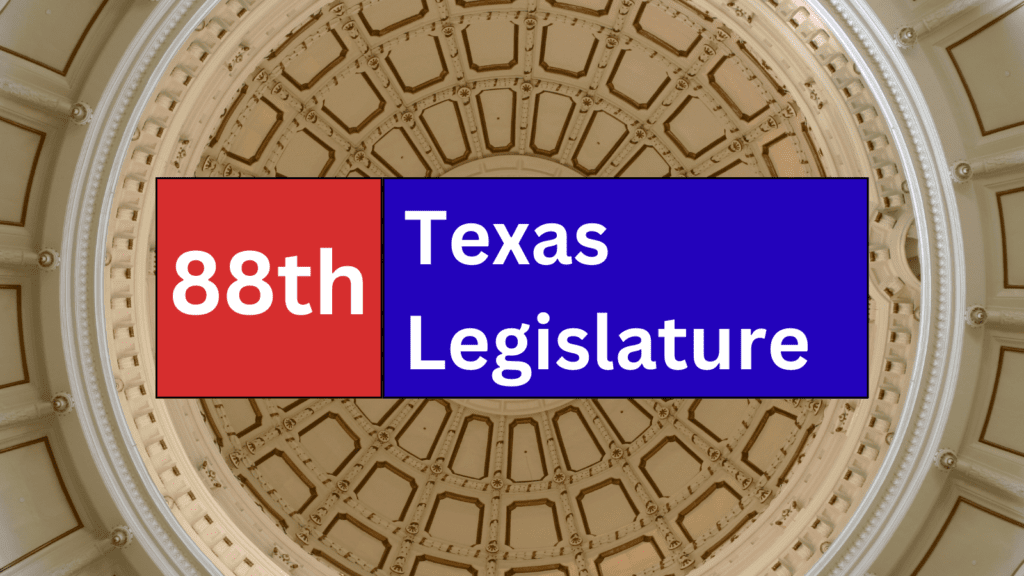
Return to April 2023 Dairy Dispatch
Note: Information current on May 17, 2023
Around the Capitol:
The pace picks up – a sprint is ahead as bill deadlines loom
By Lauren Fairbanks and J Pete Laney
TAD Governmental Affairs
We are now a month and a half away from Sine Die – the end of the legislative session. The next key date legislators are keeping an eye on is May 8, the last day for House committees to report House Bills. As the legislative session rapidly rolls on, moving closer to that deadline, there will be marathon committee hearings before all the action turns to the House and Senate floors and behind closed doors for conference committees to hammer out the differences between the two versions of a bill.
Looking at the 93rd day for comparison purposes over the last three sessions, the Senate has been advancing bills through the chamber, outpacing previous sessions, while the House pages behind its usual pace.
|
|
Key pieces of legislation we are actively working on for the Texas dairy industry include:
Milk Disposal
HB 692 by Rep. Glenn Rogers (R-Graford)/SB 872 by Sen. Drew Springer (R-Muenster), relating to the authorization for certain land applications and disposal of dairy waste, are moving through the process. HB 692 has been voted out of committee and is recommended for the Local & Uncontested Calendar. The committee report has been filed with the committee coordinator and now awaits placement on the next Local Calendar. SB 872 was heard in the Senate Water, Agriculture & Rural Affairs Committee on April 13. It is currently pending in committee. You can find TAD’s legislative handout on these bills here.
Bosque Watershed CAFO Permitting
HB 2827 by Rep. DeWayne Burns (R-Cleburne), relating to the permitting of and performance of annual soil tests for certain concentrated animal feeding operations by the Texas Commission on Environmental Quality, was heard in the House Environmental Regulation Committee on April 13, and was voted out of committee 6-0 on April 18. This bill would remove the individual permit requirement in the Bosque Watershed and allow dairy farmers in the region to operate under the general permit used by dairies throughout Texas, while keeping stringent, best management practices in place. You can find TAD’s legislative handout on this bill here.
Right to Farm
SB 1421 by Sen. Charles Perry (R-Lubbock), relating to the effect of nuisance actions, other actions, and governmental requirements on certain agricultural operations, also known as the Senate omnibus right-to-farm bill, passed out of the Senate on April 3. It was referred to the House Agriculture & Livestock committee on April 17. The House bills, HB 1750 by Rep. DeWayne Burns (R-Cleburne), HB 2308 by Rep. Trent Ashby (R-Lufkin) and HJR 126also by Burns have passed the House and were received by the Senate on April 11. We now wait to see which chamber’s version will ultimately be moved through the rest of the process.
Property Tax Relief Act Passed
HB 2 —backed by House Speaker Dade Phelan and carried by Rep. Morgan Meyer (R-Dallas) — passed the full House by a 140-9 vote on April 13.
The bill proposes putting $12 billion into Texas school districts so that they, in turn, can lower their property taxes on home and business owners. For the owner of a $350,000 home, the package would result in more than $1,000 in savings over two years.
This continues the months-long showdown with the Senate over their warring tax-cut packages. Republican leaders in the House and Senate have publicly clashed over the appraisal-cap proposal.
In addition to HB 2, Meyer has proposed constitutional amendment HJR 1, which would lower the limit on increases in appraised value to 5% a year- and expand it to all types of real property, including commercial buildings, second homes, farms and timberland.
The Senate’s proposal (SB 3, 4, 5, and SJR 3 passed on March 22), is to raise the state’s homestead exemption — the amount of a home’s value that can’t be taxed by school districts — from $40,000 to $70,000; give an additional $20,000 bump to seniors; and give tax credits to businesses. Their proposal was referred to the House Ways & Means committee on April 10th.
It remains to be seen if a compromise may be reached before Sine Die.
Different State Budget Plans Pass House and Senate
The House and Senate have each passed its spending plans for the next two-year state budget, with differences including how each addresses possible property tax reform. The real work will soon begin as a conference committee will have a several weeks to hammer out the differences in two plans that both chambers can accept. Passing a balanced budget is the only thing lawmakers are constitutionally required to do each legislative session.
On April 6, the House gave preliminary approval to HB 1 by Chairman Greg Bonnen (R-Friendswood), its version of a historic $302.6 billion state spending plan for the next two years. Of the 388 prefiled amendments, 71 floor amendments were adopted and it passed by a vote of 136 to 10.
The budget proposal lawmakers passed pushes funding to some of leaderships biggest priorities this session, including more than $17 billion for property tax cuts, $5 billion in new money for schools, $1.6 billion for school security measures and $3.5 billion for cost-of-living adjustments for retired teachers’ pensions.
The debate over the bill was one of the shortest floor debates on the budget in recent history, wrapping up before 10 p.m. Historically, the debate has lasted well past midnight. Throughout the day, lawmakers clashed over school voucher programs, state funding for abortion programs and programs that promote diversity, equity and inclusion.
The Texas Senate unanimously passed its $308 billion version of the biennial budget on April 17, with no amendments and after a one-hour discussion – a much different process than in the House. The bill includes major investments in property tax cuts, juvenile justice, mental health, higher education, state parks, historical sites, border security and pay raises for teachers and state employees. It also sets aside $16.5 billion for property tax cuts.


